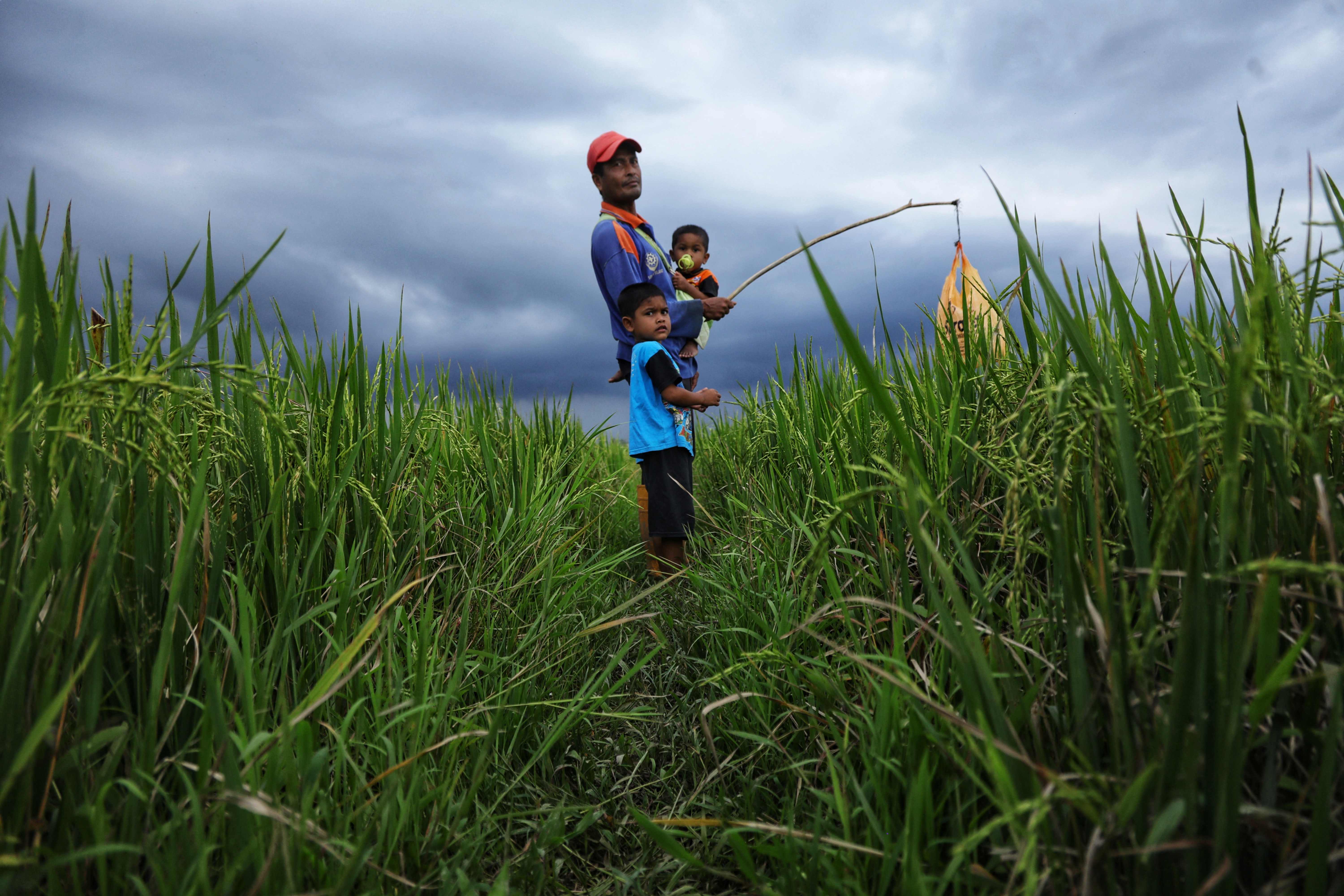Greener and more sustainable food systems should be at the centre of climate action
Cop26 presents the perfect opportunity to highlight the symbiotic relationship between climate change adaptation and resilient food systems, writes Ban Ki-moon


Your support helps us to tell the story
From reproductive rights to climate change to Big Tech, The Independent is on the ground when the story is developing. Whether it's investigating the financials of Elon Musk's pro-Trump PAC or producing our latest documentary, 'The A Word', which shines a light on the American women fighting for reproductive rights, we know how important it is to parse out the facts from the messaging.
At such a critical moment in US history, we need reporters on the ground. Your donation allows us to keep sending journalists to speak to both sides of the story.
The Independent is trusted by Americans across the entire political spectrum. And unlike many other quality news outlets, we choose not to lock Americans out of our reporting and analysis with paywalls. We believe quality journalism should be available to everyone, paid for by those who can afford it.
Your support makes all the difference.The 25,000 or so delegates gathered in Glasgow for Cop26 have a critical task – to discuss and agree on solutions to avert a climate catastrophe that could bring untold destruction to the world. As negotiations stretch into the nights and become heated, as they often do, the one thing they can count on is having climate-friendly and healthy meals.
The organisers of Cop26 have ensured that 80 per cent of food served at the conference is seasonal and sourced in Scotland, such as Mara seaweed, which can grow without fertiliser, fresh water or soil, and carrots and potatoes stored using renewable energy. Many of my team members present at the conference have reported back on the good quality of food. There is also a concerted and commendable effort being made to reduce food waste.
This is a perfect example of how food and farming are both a driver of and a solution to the climate crisis. Unless we change how we currently produce, process, transport, consume and discard food, we will not make any headway on climate change mitigation and adaptation, the defining issue of our time.
Discussions on climate change currently tend to focus on transport and energy sectors, but food systems account for more than a third of global greenhouse emissions, with far-ranging environmental effects. Agriculture is also extremely vulnerable to shifts in temperature and rainfall. More and more farmers, particularly smallholders who produce about a third of the world’s food, are struggling with lost harvests and livestock, while trying to adapt to increasingly irregular weather conditions.
Heat, drought, floods, storms, sea level rises and insect infestation are just some of the climate risks food producers are facing. They have the potential to devastate the lives and livelihoods of hundreds of millions of people – the farmers as well as the people who rely on them for food.
In 2020, 811 million people were undernourished and around 3 billion – more than one in three – could not afford healthy diets. To make things worse, rising concentrations of carbon dioxide are expected to reduce the availability of critical nutrients such as protein, iron and zinc.
This is the delicate balance we must strive for – slashing emissions while ensuring enough nutritious food for everyone, leaving no one behind. We need to highlight the interconnected issues of food systems, hunger and poverty, biodiversity and stability, and climate adaptation and resilience. Agriculture must be a touchstone issue for powerful developing country blocks within the Cop26 negotiations.
Agriculture is the main driver of deforestation and land conversion, but it also holds the keys to keep global warming below 2C. With the right investments in research and innovation, smallholder farmers, especially women, indigenous peoples and young people, can be part of the solution to many of the challenges we face, transforming food systems in ways that reduce hunger and poverty, improving access to healthy diets and protecting the environment and biodiversity. Nature-based adaptation solutions can provide us with healthy and delicious foods that are good for consumers, farmers and the planet.
The UK has identified four key goals to achieve during the two-week Cop26 event, with an emphasis on protecting nature, including building resilient agricultural systems and halting deforestation as key adaptation and mitigation strategies.
We saw the official launch of the Agriculture Innovation Mission for Climate (AIM4C) initiative by the governments of the USA and UAE, calling for an increase in investment for climate-smart agriculture and food systems innovation over the next five years, which will accelerate the development of technologies and crops that can be adopted by even the poorest farmers.
In addition, it was promising to see a coalition of funders pledge $575m (£429m) to CGIAR– the leading force in demand-driven agricultural research and innovation – to deliver climate-smart solutions to farmers in low-income countries.
This is the most attention food systems and agriculture have ever received when compared to previous climate conferences, yet it would be premature of us to celebrate, because transforming food systems should be higher on the Cop26 agenda. For example, food systems are largely absent in the Nationally Determined Contributions (NDCs), which are countries’ blueprints for how to limit their greenhouse gas emissions, according to the Global Alliance for the Future of Food.
The alliance is assessing NDCs of 14 key nations, including China, Egypt, South Africa and Kenya and has completed eight, including those of the UK, the US, Colombia and Bangladesh. What it found was worrying. No country has fully accounted for emissions associated with food imports, particularly those related to deforestation.
Only Germany provided a clear commitment to move away from harmful subsidies and only two nations – Colombia and Kenya – have put forward ambitious measures to adopt ecologically friendly farming practices.
Today, world leaders must focus equally on adaptation and mitigation. Investing wisely now to adapt to changes already underway and prepare for future climate shocks will prevent bigger losses and damages in years to come.
To keep up to speed with all the latest opinions and comment sign up to our free weekly Voices Dispatches newsletter by clicking here
If we really want to tackle the climate crisis, we must consider whole food systems. This means going beyond trees, land use and productivity and looking at the whole value chain as well as the people, from smallholder farmers and labourers, to food service workers and delivery drivers, who keep it running.
The momentum around food system transformation and climate-resilient agriculture that has been created by the UN Food Systems Summit in September must be carried throughout Cop26, and then to the Nutrition for Growth Summit in Tokyo next month, another important pledging moment for world leaders.
Six years ago, at the opening of the high-level session of the Paris climate conference, I said: “The clock is ticking towards climate catastrophe.” The historic Paris Climate Agreement that emerged from the meeting laid the groundwork for a world where there is long-term peace, stability and prosperity, but there is much more work to be done.
Positioning greener, fairer and more sustainable agricultural practices at the centre of climate action would go a long way towards achieving climate-resilient food systems that leave no one behind.
Ban Ki-moon is the 8th UN secretary general and co-chair of the Ban Ki-moon Centre for Global Citizens
Join our commenting forum
Join thought-provoking conversations, follow other Independent readers and see their replies
Comments